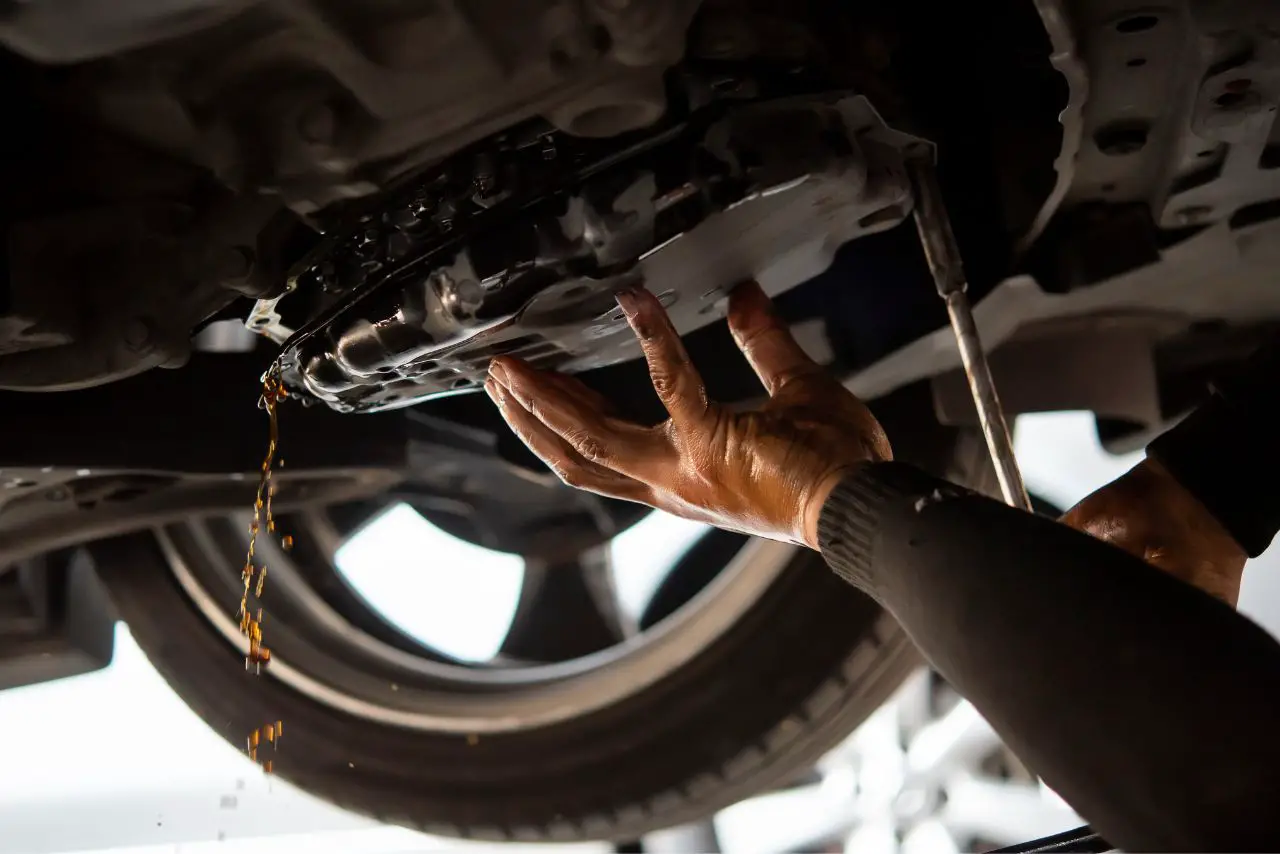Reduced Engine Power When Cold: Reduced engine power when cold is a condition in which the engine has reduced power output due to cold temperatures.
This is usually caused by a problem with the fuel system, the ignition system, or the computerized engine control system.
The engine can be returned to normal power output once the engine is warmed up.
Reduced engine power when cold is a common issue that many car owners experience during the winter season.
It can be caused by a variety of factors and can lead to slow or unreliable starting. This can be frustrating, especially when you need your car to start quickly and smoothly.
In this blog post, we will explore the possible causes of reduced engine power when cold and provide useful tips for troubleshooting the issue.
Why Is My Engine Low Power When Its Cold?
If you’re experiencing low power in your engine when it’s cold, you’re not alone. It’s a common issue that can be caused by a range of factors.
One possible cause is a malfunctioning sensor that’s responsible for measuring the amount of air entering the engine.
Another factor to consider is the fuel supply. Cold temperatures can cause fuel to thicken, making it harder for the engine to draw it in.
Another potential culprit is the spark plugs. If they’re worn out or dirty, they might not be able to ignite the fuel properly, resulting in low power.
To fix this issue, start by checking the air sensor and replacing it if necessary. You should also ensure that your fuel supply is clean and free of impurities.
Finally, check your spark plugs and replace them if they’re worn out.
Can Cold Weather Cause Reduced Engine Power?
Cold weather can definitely cause reduced engine power in several ways. For starters, cold temperatures can affect the viscosity of the oil used to lubricate your engine’s moving parts.
When oil becomes too thick in cold weather, it doesn’t flow as easily through the engine, which can lead to increased friction and decreased efficiency.
In addition to affecting oil viscosity, cold weather can also cause issues with your vehicle’s battery.
When temperatures drop too low, a car battery may not be able to generate enough power to start the engine or may struggle to maintain a charge while driving. This could then result in reduced performance overall.
Finally, colder air is denser than warmer air and therefore requires more fuel for combustion.
As such, engines that rely on oxygen sensors to adjust fuel injection levels may not perform as well when it’s colder outside due to this increased demand for fuel.
Reduced Engine Power Reasons:
Reduced engine power is a situation where your car’s engine is not operating at its full capacity. This can be caused by a variety of factors, including:
| Possible Causes | Solutions |
|---|---|
| Cold weather affecting fuel delivery | Use a block heater to warm up the engine before starting in cold weather |
| Malfunctioning or dirty mass airflow sensor (MAF) | Check and replace dirty or malfunctioning MAF sensor |
| Faulty oxygen sensor | Inspect and replace faulty oxygen sensor |
| Clogged or dirty fuel injectors | Clean or replace clogged fuel injectors |
| Low engine coolant level | Ensure the engine coolant is at the proper level |
| Failing ignition system components | Check and replace failing ignition system components |
| Faulty throttle position sensor (TPS) | Inspect and replace faulty TPS |
| Issues with the engine’s air intake system | Clean or repair any issues with the air intake system |
| Clogged air filter | Replace the clogged air filter |
| Bad fuel pump | Replace the malfunctioning fuel pump |
| Faulty sensors (e.g., oxygen sensor, throttle position sensor) | Inspect and replace faulty sensors |
| Clogged fuel injectors | Clean or replace clogged fuel injectors |
| Worn spark plugs | Replace worn spark plugs |
1. Clogged air filter:
A dirty air filter can restrict the amount of air that enters the engine, causing reduced engine power.
2. Bad fuel pump:
A malfunctioning fuel pump can cause low fuel pressure, which in turn reduces engine power.
3. Faulty sensors:
Sensors that are not working correctly, such as the oxygen sensor or the throttle position sensor, can cause reduced engine power.
4. Clogged fuel injectors:
Dirt and debris can accumulate in the fuel injectors, causing them to become clogged and reduce fuel flow to the engine.
5. Worn spark plugs:
As spark plugs wear down, they can produce weaker sparks, leading to reduced engine power.
If you experience reduced engine power, it’s important to have your vehicle inspected by a professional mechanic to determine the cause and ensure proper repairs are made.
How to Troubleshoot Reduced Engine Power When Cold?

Check the battery:
If you’re experiencing reduced engine power when your car is cold, the battery could be the culprit. Start by checking the battery’s voltage, as a weak battery may struggle to supply the necessary power to the engine.
A fully charged battery should have a voltage between 12.6 and 12.8 volts. If the battery’s voltage is lower than this, it may need to be recharged or replaced.
Additionally, check the battery’s connections to ensure they are clean and securely tightened. Corrosion or loose connections can also cause reduced engine power.
If the battery checks out, move on to other potential causes such as a faulty oxygen sensor or a clogged air filter.
Troubleshooting reduced engine power when cold can be frustrating, but by starting with the battery, you can eliminate one potential cause and move closer to a solution.
Check the fuel system:
Start by verifying that there is sufficient fuel in the tank. Next, check the fuel filter for any clogs or debris.
If the fuel filter is clogged, it can reduce fuel pressure and cause engine power to be reduced. Another possible cause of reduced engine power when cold is a faulty fuel pump.
Check the fuel pump pressure and ensure it is within the manufacturer’s recommended range.
If the fuel system seems to be functioning properly, then it may be an issue with the engine’s sensors or ignition system.
In such a case, it’s best to have your vehicle inspected by a qualified mechanic who can diagnose and repair the problem before it worsens.
Check the spark plugs:
Another things to check when troubleshooting this issue is the spark plugs. Check for any signs of wear and tear such as cracks or gaps in the electrodes.
If they appear damaged, it’s best to replace them. Another thing to consider is the gap between the spark plug electrodes.
This gap should be within the manufacturer’s specifications, and adjusting it can help improve engine performance.
Additionally, make sure the spark plugs are clean and free from debris. If the spark plugs aren’t the issue, it’s best to seek professional help to diagnose the problem.
Check the engine oil:

Another potential cause of reduced engine power when cold is low engine oil.
Check your oil levels regularly, especially during colder months when the oil thickens and becomes less effective.
Low oil levels can cause increased friction in the engine, resulting in decreased power output.
If your engine oil level is low, top it up with the recommended oil type for your vehicle. It’s also important to ensure that the oil is clean and free from debris or contaminants.
Regularly changing your engine oil and filter can help prevent reduced engine power caused by insufficient lubrication.
Preventative Measures:
Use a block heater:
To prevent reduced engine power when cold, you can use a block heater. A block heater is an electric heating element that warms the engine’s coolant, making it easier to start the engine in cold weather.
This can reduce wear and tear on the engine and improve fuel efficiency.
Another preventative measure is to park your car in a garage or under a shelter during winter months to keep it warm and protect it from the elements.
Use a battery warmer:
Another preventative measure to avoid reduced engine power in cold weather is to use a battery warmer.
A battery warmer is an electric heating pad that can be placed on top of the battery, keeping it warm and preventing it from losing charge in extremely cold temperatures.
Additionally, using a fuel additive during winter months can help prevent fuel line freezing and clogging, which can also lead to reduced engine power.
Use a fuel additive:
Using a fuel additive during winter months can help prevent fuel line freezing and clogging, which can also lead to reduced engine power.
Regular maintenance:
Regular maintenance is crucial in preventing reduced engine power when cold.
During cold weather, engines may experience a drop in power output due to various issues such as clogged air filters, dirty fuel injectors, or low oil levels.
To prevent these issues, it is important to follow the manufacturer’s recommended maintenance schedule.
Regularly replacing air filters and checking fuel injectors will ensure the engine receives enough air and fuel to operate efficiently.
Additionally, checking oil levels regularly and replacing dirty or old oil will ensure proper lubrication of the engine’s moving parts.
Ignoring regular maintenance can lead to more serious problems such as engine misfires, reduced fuel efficiency, and even complete engine failure.
Is Reduced Engine Power Serious?
Reduced engine power can be a serious issue, particularly when it occurs in cold weather.
This is because colder temperatures can cause problems with a vehicle’s engine and its various components.
When the engine power is reduced while driving in such conditions, it can lead to poor performance, acceleration issues, and even stalling.
Summary: Reduced Engine Power When Cold:
Reduced engine power when cold can be a frustrating and potentially dangerous issue.
However, by following these preventative measures and regularly maintaining your vehicle according to the manufacturer’s recommendations, you can reduce your risk of experiencing reduced engine power.
Remember to check your spark plugs, engine oil levels, and use block heaters and battery warmers as necessary to keep your engine running smoothly in cold weather conditions.
By taking proactive steps to maintain your vehicle’s engine, you can ensure it operates at peak performance year-round.





